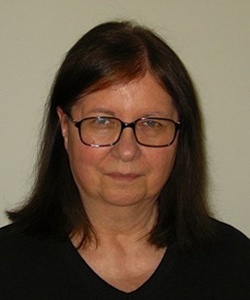
Lives of Consequence
Antoinette “Toni” Vorisek Richardson '69

Throughout her career as an educator and administrator, Antoinette “Toni” Vorisek Richardson ’69 has been a devoted advocate for people with intellectual disabilities and mental illnesses. She worked for the state of Connecticut for 25 years, licensing private and public facilities, directing a regional education center and ultimately leading what is now known as the state’s Department of Developmental Services (DDS). As DDS Commissioner, Richardson was responsible for all state and privately run facilities and services for people with cognitive or intellectual impairment.
Richardson was first inspired to pursue her career as a student at Hobart and William Smith in the late 1960s, when she accompanied a classmate in the education program on a field trip to the Newark State School in Newark, N.Y., a residential facility for people with intellectual disabilities or mental illnesses.
“I had no prior experience with services for people with cognitive or intellectual disabilities,” says Richardson. “The classroom space seemed nice, with small classes and children with minor disabilities. But as we walked on the campus I heard screams and cries coming from buildings that appeared to have beds close together.”
When Richardson asked the tour guide about those buildings, she was told they were for people “too disabled to benefit from any education.”
That experience stayed with Richardson, and after graduation she began working for the Southbury Training School in Connecticut, a state-funded and state-operated residential and direct care facility for children and adults with intellectual disabilities.
“The Southbury Training School was looking for teachers, but I had no experience,” says Richardson. “So I accepted a job in residential direct care. I spent six months working all shifts and spent most of my time in residences for ‘custodial’ people.”
With that experience in hand, Richardson was hired for a teaching position in an experimental program, educating children previously deemed “uneducable.” Richardson says it was that program and others like it around the country that helped lead to the passage of the law guaranteeing education to all children, regardless of ability.
Richardson went on to earn a master’s degree in special education from Fairfield University and a law degree from the University of Connecticut before ascending through the ranks of the DDS.
“My work as commissioner led to the closure of some of Connecticut’s public and private institutions and their replacement with group homes, family care homes, and a variety of more integrated services,” she says.
The work also connected Richardson with “counterparts across the country and in several foreign countries, so that by the time I left state service I had many contacts in the field.”
She went on to consult for a variety of states and providers on improving their service plans, often serving clients involved in legal cases and agreements with the U.S. Department of Justice regarding institutional conditions.
Now retired, Richardson and her husband grow Christmas trees on their farm in Warren, Connecticut.
